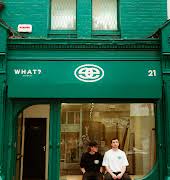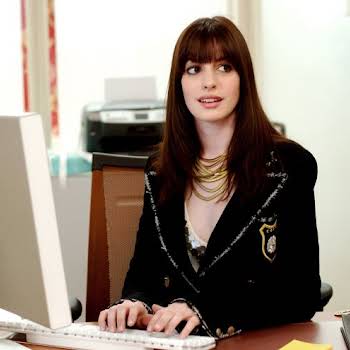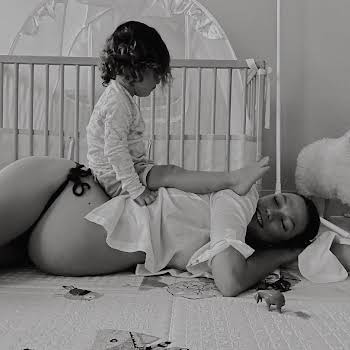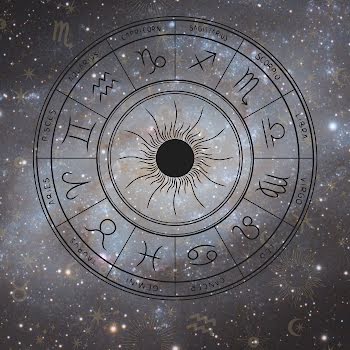
The surprising mathematical formula for a happy life (according to Harvard professors)
What if we could measure well-being in a more binary way?
What is the key to happiness? Doesn’t it depend on the individual? What if we are racing up the wrong happy path?
For centuries, we have been obsessed with living the best life that we can, aware of the fragility of it all. As the poet Mary Oliver wrote; “Doesn’t everything die at last, and too soon? Tell me, what is it you plan to do with your one wild and precious life?”
But never have we been as focused on self-love and the pursuit of happiness as right now. Some believe they can find it from objects, cars, handbags, houses. Others hold their religion tight, convinced that is their smiley-shaped key to satisfaction.
Science
But pinpointing the exact intersection between what you desire and being fulfilled is exactly what the clever clogs at Harvard Business School of Happiness have been working on. And the results might surprise you.

Firstly, I know you are wondering if a school like this actually exists, but do not underestimate the power of the need to seek out happiness. Author Arthur C. Brooks teaches a class at the Harvard Business School on happiness. He says the scientific study of the topic has exploded.
“The Nobel Prize winners Daniel Kahneman and Angus Deaton (both at Princeton University) publish extensively on the subject. The University of Pennsylvania has a whole graduate-degree program in positive psychology, led by Martin Seligman, one of the most distinguished social psychologists in the world. A peer-reviewed academic journal called the Journal of Happiness Studies has been in operation since the year 2000…”
Well-being
Brooks disagrees with the famous Americal novelist, Nathaniel Hawthorne who famously said that “Happiness is a butterfly, which, when pursued, is always just beyond your grasp, but which, if you will sit down quietly, may alight upon you.”
According to an essay written by Brooks for the Atlantic, he says it is, in fact, a lot less romantic. He believes it is more about studying things like affect and the limbic system, the neurobiology of body language, homeostasis and the persistence of subjective well-being, oxytocin and love, acquisition centrality and negative affect, and the hedonic treadmill.
Not exactly the floaty notion of hearts and rainbows.
Brooks believes that you can measure happiness with the simple equation; SUBJECTIVE WELL-BEING = GENES + CIRCUMSTANCES + HABITS. In other words, there is a huge genetic component in determining your “set point” for subjective well-being. And that along with circumstance and the habits, meaning the good and the bad that enter all of our lives, is what makes up your happy cocktail.
Still with me?
Needs versus desires
If you don’t like the idea that your ‘Happy’ can be determined long before we’ve even left the womb, he has another one for us. For this, happiness and satisfaction are considered the same. SATISFACTION = WHAT YOU HAVE ÷ WHAT YOU WANT.
This isn’t entirely new. Spiritual leaders have been drumming this into us since records began. The Dalai Lama said; “We need to learn how to want what we have not to have what we want in order to get steady and stable Happiness.
We were always told as children; Don’t forget it: he has most who needs least.
Ergo, don’t create needs for yourself.

But Brooks warns; “This is not just a gauzy spiritual nostrum, however—it is an intensely practical formula for living. The secret to satisfaction is to focus on the denominator of the equation. Don’t obsess about your haves; manage your wants, instead. Don’t count your possessions (or your money, power, prestige, romantic partners, or fame) and try to figure out how to increase them; make an inventory of your worldly desires and try to decrease them.”
But lowering expectations has never been my style. In fact, desire has motivated most of my life’s work. I guess the real question is what does happiness mean to you because simple satisfaction seems pretty dull to me.
Joy
I’m more of a fireworks-sparkles-end of the rainbow-happiness hunter. I’m looking for all-consuming, turn me upside-down, bowl me over sparks of joy for my one wild and precious life.
I’ve tasted it and am happy to continue to hunt it down. For now, it is the shape of my children’s faces, it is buying the perfect gift for someone you know will adore it, it is flying through the clouds on the way to some new place, it is the perfect pedicure, a long lazy hug, it is feeling centered in yourself and having people around you who really do care.
It was hiding in plain sight, but the pandemic has turned it into a neon flashing sign. Read it, be it, own it, and don’t ever be afraid to chase it.
Image via unsplash.com
Read more: The secret to a happy marriage (according to relationship therapists)























